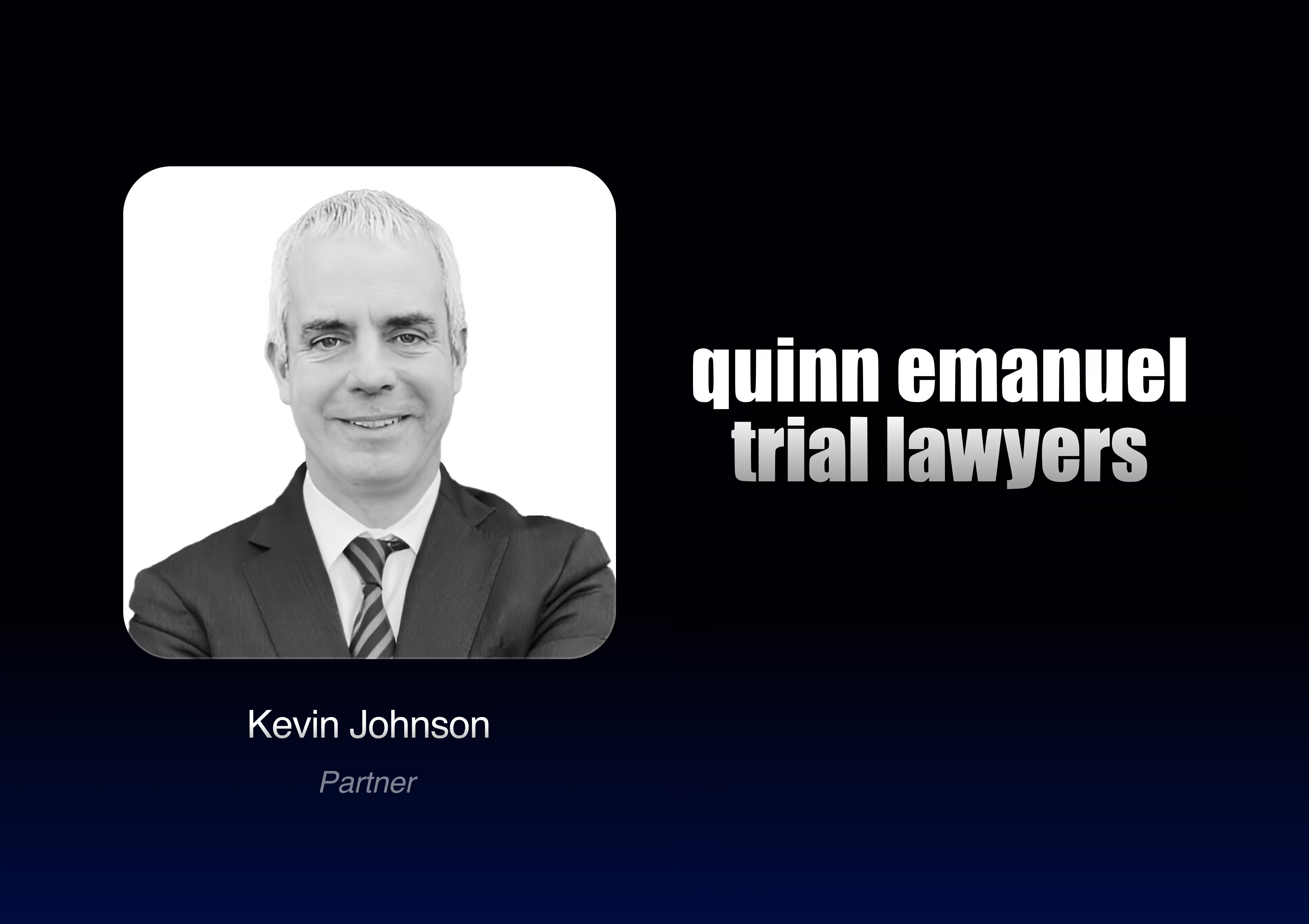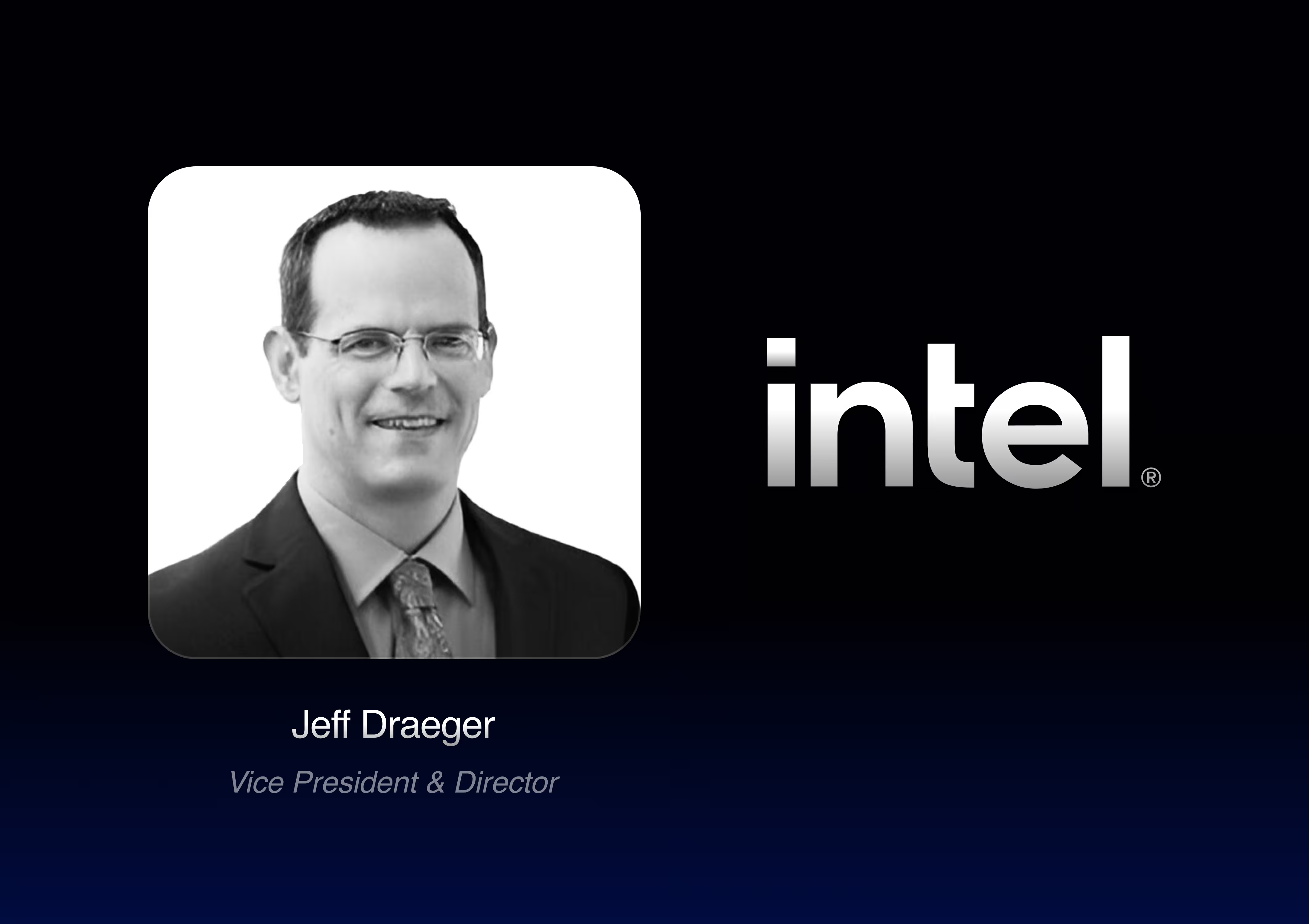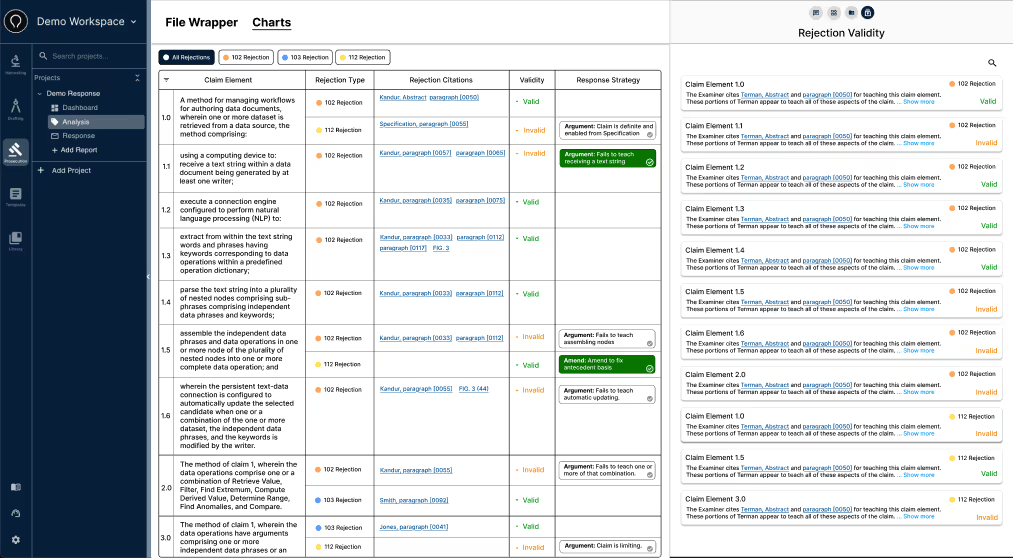Justin studied Chemical Engineering at the University of Wisconsin-Madison and law at Georgetown University Law Center. Before joining Solve, he practiced law at Quarles & Brady, a top U.S. law firm, where he managed, supervised, and prosecuted global patent portfolios and counseled companies on multi-million-dollar global product and technology launches.
Related articles

Dina Blikshteyn to join Solve Intelligence’s Customer Advisory Board
We are excited to welcome Dina Blikshteyn, partner at Haynes Boone, to Solve Intelligence's Customer Advisory Board.
Legal News
All

Kevin Johnson to join Solve Intelligence’s Customer Advisory Board
We’re excited to welcome Kevin Johnson, partner at Quinn Emanuel, to Solve Intelligence’s Customer Advisory Board.
Legal News
All

Jeff Draeger to join Solve Intelligence’s Customer Advisory Board
We are excited to welcome Jeff Draeger, Director of Intel’s Patent Group, to Solve Intelligence’s Customer Advisory Board.
Legal News
All
.avif)
Harm van der Heijden joins Solve's Customer Advisory Board
We are excited to welcome Harm van Heijden, a partner at NLO, to Solve Intelligence’s Customer Advisory Board.
Legal News
All

Best 6 AI Patent Drafting and Patent Prosecution Tools in 2025
The process of patent drafting, from drafting applications to responding to office actions, can be time-consuming and intricate. Fortunately, AI tools have emerged as game-changers for patent professionals, simplifying the process and improving accuracy. In this article, we’ll explore the top AI patent drafting tools and highlight key features, benefits, and how these tools are reshaping the patenting landscape.
Key Takeaways
- AI patent drafting tools in 2025 deliver end-to-end support, from analyzing invention disclosure to generating the specification.
- These tools increase efficiency, accuracy, and focus on best practice while reducing the time and cost of patent preparation.
- Solve Intelligence’s Patent Drafting Copilot offers jurisdiction-specific, technology-specific, and user-specific customization for highly tailored application drafting.
- Investing in advanced patent drafting tools is essential for staying competitive and meeting client expectations in a rapidly evolving IP landscape.
AI for Patent Drafting
All

AI Claim Charting - Patent Prosecution
Patent prosecution has always hinged on precision, speed, and strategic foresight. Yet as Office Actions grow in both volume and complexity, often bundling multiple §§102 (novelty) and 103 (obviousness) rejections grounded in nuanced claim interpretations and an ever-expanding body of prior art, the traditional toolkit of the patent professional faces serious challenges. Manual claim charting, painstaking annotation of cited references, and labor‑intensive crafting of responses under tight deadlines can create bottlenecks, drive up costs, and leave room for human error.
Enter AI-powered claim charting: a suite of advanced natural language processing (NLP), machine‑learning (ML), and knowledge‑representation technologies that is rapidly reinventing each step of the Office Action workflow. By automating the generation of claim charts, surfacing hidden flaws in Examiner rejections, semantically analyzing claim language, and even proposing targeted response strategies, AI tools are transforming how attorneys and agents prosecute patents.
In this post, we’ll explore four core capabilities of AI‑driven claim charting and how they bring both speed and insight to Office Action responses:
- Automated analysis of Examiner rejections
- Instant flagging of issues and gaps
- Holistic assessment of claim language and prior art
- AI‑generated response strategies
AI for Patent Drafting
All
